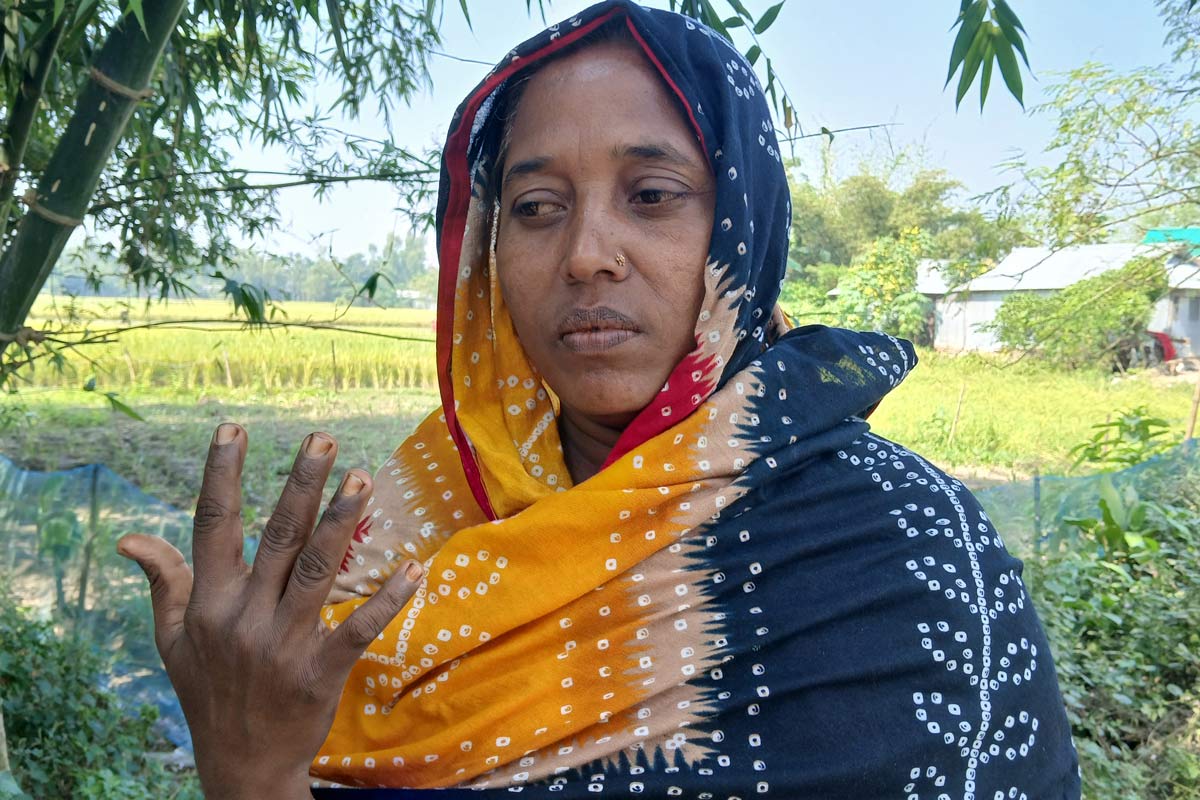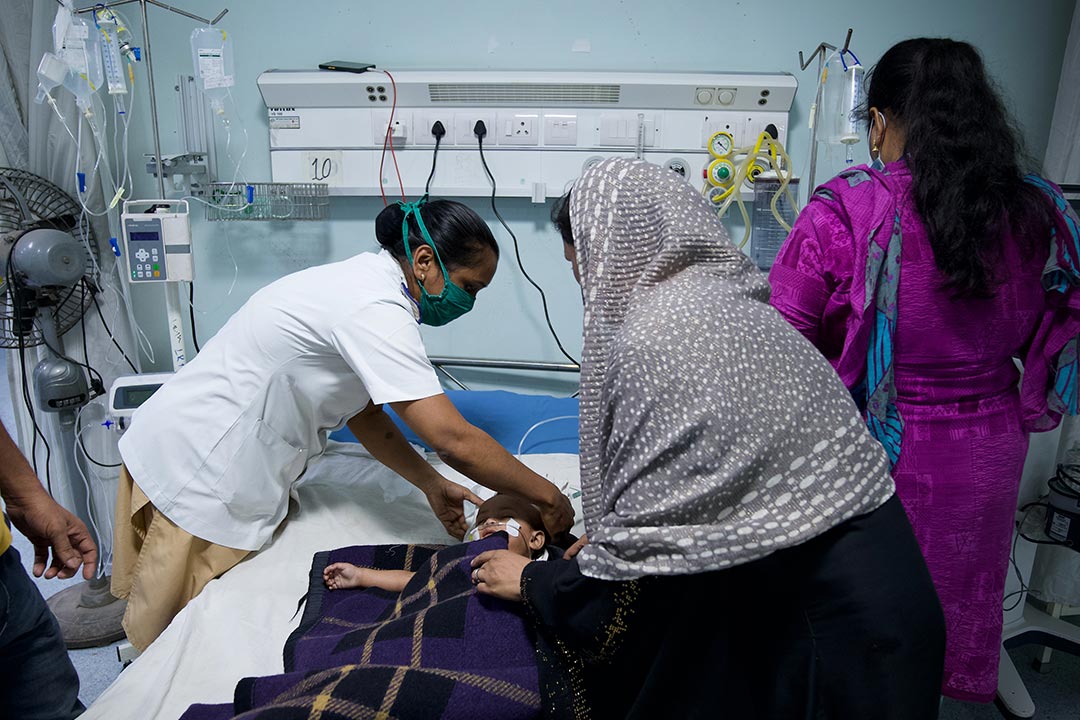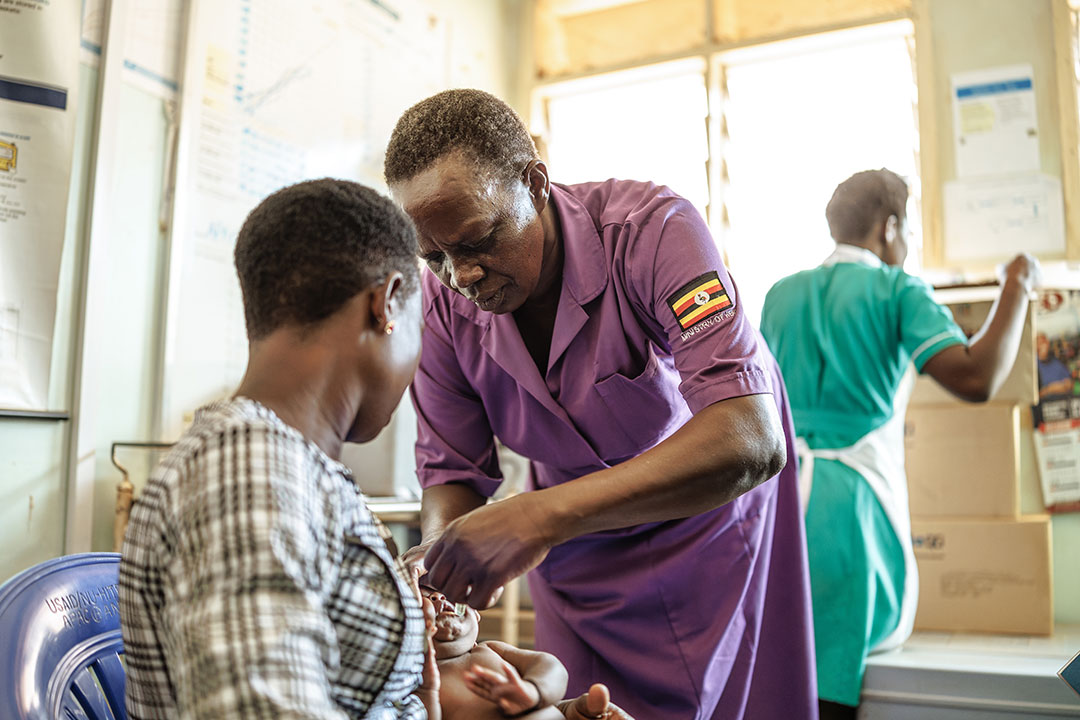Zika detected in Bangladesh capital
The strain of the virus found in Dhaka appears to be distinct from better-known lineages, and scientists say more research is needed to understand the true burden of the disease.
- 27 May 2025
- 7 min read
- by Mohammad Al Amin

After scientists report finding the first proven cluster of Zika virus cases in Dhaka, the country’s densely-populated capital city, Bangladesh’s public health system may need to prepare for a battle with a fourth mosquito-transmitted scourge.
In recent years, Bangladesh has seen large-scale dengue epidemics, periodic Chikungunya outbreaks and an annual malaria case-count still numbering in the many thousands.
According to icddr,b, the Dhaka-based research institution responsible for the discovery, “the tropical climate of Bangladesh, with its warm temperatures and long monsoon season, provides optimal breeding conditions for Aedes mosquitoes, leaving the country particularly vulnerable to many mosquito-borne diseases.”
Multiple mosquito perils
Among those diseases, it’s dengue that currently presents the greatest threat. After recording its first major outbreak in 2000, Bangladesh’s dengue burden has risen alarmingly: 2023’s was the largest to date, with 321,179 reported infections and 1,705 deaths.
At the same time, the country also has been facing the threat of chikungunya for the last few years. A major 2017 outbreak centred on Dhaka affected some 14,000 people.
Malaria, on the other hand, is on the retreat, with the government targeting elimination in the next few years. The Directorate General of Health Services (DGHS) said Bangladesh has recorded just 641 malaria cases and one death in the first quarter of 2025 – down from 13,099 cases and six fatalities in 2024, and a dramatic improvement on the 84,690 cases and 154 deaths reported in 2008, the country’s worst year. Yet the disease remains a public health challenge across ten still-endemic districts.
Scientists have warned that Bangladesh is likely vulnerable to Zika outbreaks for years, with isolated cases being confirmed periodically, but the icddr,b researchers, who recently carried out a “small, targeted screen” to detect the presence of circulating Zika virus in Bangladesh, were the first to confirm a cluster of cases in the capital. The five cases were discovered in patient samples collected in 2023. All five patients lived within a kilometre of each other, were sampled within a month of each other, and had no travel history outside the country for two years before they presented with symptoms. One of the patients was co-infected with dengue.
More research on Bangladeshi strain called for
In a news release published in March, icddr,b said “the authors screened samples from patients coming to the diagnostic facility of icddr,b at Mohakhali in Dhaka in 2023 and performed PCR-based testing for Zika virus in samples from 152 patients with fever and any one other symptom of Zika virus. The presence of Zika virus infection in five of these samples suggests that a larger, nationwide screen is necessary to quantify the true burden of the disease in Bangladesh.”
Speaking to VaccinesWork, Dr Shafiul Alam, scientist at icddr,b, stated that the study identified the Bangladeshi strains of the Zika virus as belonging to the Asian lineage.

“These strains are genetically distinct from other Zika virus strains collected globally, and differ notably from the African lineage,” he explained. “This is a matter of concern for Bangladesh, as it remains unclear whether the Asian lineage of the Zika virus is also capable of causing neurological disorders, including microcephaly.”
He further said the Bangladeshi strains were most similar to Zika virus strains isolated in Cambodia and China strains in 2019. “Bangladeshi immigrants currently working in different Zika-affected countries in Southeast Asia may transmit the virus in their communities.”
Shafiul Alam said routine Zika virus testing for travellers from Zika-affected countries, alongside increasing diagnostic capacity and systematic surveillance on a national level, would help control major outbreaks in the future. “Vaccination also can play a vital role in keeping the situation under control,” he added. “So, we have to look for the vaccine to fight against this deadly virus.”
Clinical camouflage
Dr Ariful Bashar, Acting Superintendent of the Infectious Diseases Hospital (IDH) at Mohakhali in Dhaka, said it is difficult to detect the Zika virus infection without specific tests, as the symptoms of the disease are similar to dengue infection.
“Zika virus infection has also no specific treatment. But we provide treatment to this type of patient based on symptoms. The Zika infection is also sometimes a fatal disease specially during pregnancy due to adverse pregnancy outcomes if the patient does not get the treatment timely,” he added.
Shrebash Paul, Junior Consultant at Medicine unit at the IDH, said some Zika patients admitted to the hospital last year presented with mild symptoms like body ache and fever.
“We carried out test as suspected dengue patient but they tested Zika positive. After giving necessary treatment, the patients were released from the hospital getting recovery,” he added.
Institute of Epidemiology, Disease Control & Research (IEDCR) under the DGHS keeps the Zika virus infection under surveillance, through carrying out the tests of the suspected cases to confirm virus infection.
Have you read?
Covert spread?
Though this is the first confirmed cluster in Dhaka, it’s not the first time Zika has been traced in the country. The first-ever Zika case in Bangladesh was confirmed in 2016, which the IEDCR detected in retrospective surveillance. The sample had been collected in 2014 from a patient who had no prior history of travelling abroad.
“We are getting Zika virus infection cases for last few years. We have detected some Zika infection cases last year. It is definitely threat for our country as we already have been struggling to fight with other mosquito-borne diseases including dengue,” Prof Dr Tahmina Shirin, Director of the IEDCR told VaccinesWork.
She said there is no other path but controlling the mosquito, to prevent and fight against mosquito-borne diseases, including Zika virus infection. According to the IEDCR, from a sample of 100 patients last year, researchers traced 11 Zika virus patients and some dengue patients.
Talking to VaccinesWork, Mohammad Halimur Rashid, Line Director (CDC) of the DGHS, said drives to tamp down the mosquito vector’s spread can help the country mitigate the risk of large-scale Zika outbreaks. “However, it is difficult to know the actual situation as the Zika diagnosis RT-PCR test service is not available in all hospitals of the country.”
He explained that Zika testing is available in IEDCR, icddr’b and in certain private hospitals of the country.
Kill the messenger
“To control the Aedes mosquito, we are running nationwide campaign to build awareness among people about the mosquito. We have continued drives against the mosquitoes, especially against Aedes mosquito, to control the mosquito-borne diseases. At the same time, we are also looking for other possible options – including vaccine – to fight against the mosquito-borne diseases,” Md. Halimur Rashid added.
Public health expert Be-Nazir Ahmed, former director of Disease Control at the DGHS, said, “like other vector-borne diseases like dengue and chikungunya, Zika virus is another threat for our country. Having Zika virus infection can have serious consequences, especially for pregnant women and their developing foetuses. While most infections are mild and resolve on their own, Zika can cause birth defects, neurological complications and other pregnancy complications.
“Zika virus infection during pregnancy can cause infants to be born with microcephaly and other congenital malformations as well as preterm birth and miscarriage. Zika virus infection is associated with Guillain-Barré syndrome, neuropathy and myelitis in adults and children,” he added.
Be-Nazir Ahmed further said, “Due to lack of testing facility to diagnose the virus infection, it is alarming that we do not know the actual situation of Zika virus. Even we will remain unaware if any massive outbreak takes place.”
“Since the symptoms of the Zika virus infection is almost mild and similar to dengue, it is risky as the suspected patients will go for dengue test and will get dengue negative case. To combat the mosquito-borne diseases, we have to pay full attention to control the Aedes mosquito and look for alternatives, like vaccines, to prevent the diseases,” he added.
Transmission routes
According to World Health Organization (WHO), Zika is primarily transmitted by the bite of infected Aedes mosquitoes – the same species capable of transmitting dengue, chikungunya and yellow fever. But Zika can also be transmitted from mother to foetus during pregnancy, and through sexual contact, and blood or blood products. No licensed vaccine against Zika is yet available, though several candidate vaccines are in research and development.








